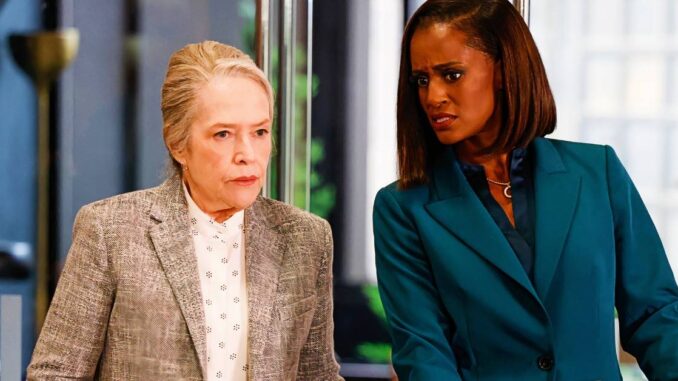
The Southern Belle with a Legal Hammer: Kathy Bates Shatters Gender Norms in Reimagined Matlock
The original "Matlock" conjures images of Andy Griffith, a folksy patriarch in a rumpled suit, dispensing justice with folksy charm and a pocket full of hot dogs. It was a comforting portrayal of traditional American masculinity, a reassuring figure of authority in a world that felt increasingly complex. So, when the announcement came that Kathy Bates would be taking on the iconic role in a reimagined "Matlock," the reaction was a mixture of excitement and apprehension. Would she simply mimic Griffith's mannerisms? Or would she boldly carve a new path, leveraging her undeniable talent to deconstruct the ingrained gender expectations associated with the character? The answer, thankfully, is a resounding the latter. Bates' "Matlock" is not just a gender-swapped version of the original; it's a nuanced and captivating exploration of how a woman can command respect and wield power in a world still grappling with its own biases.
One of the most significant ways Bates breaks gender norms is through her subversion of the “matronly” archetype. Historically, women of a certain age are often relegated to passive roles, their wisdom and experience overlooked in favor of youth and perceived vitality. Bates, however, embraces her age and physical presence. Her Madeline Matlock is a woman comfortable in her own skin, her Southern drawl not a sign of weakness but a carefully honed tool of persuasion. She's not striving for a youthful facade; instead, she embodies a quiet confidence that demands attention. This refusal to conform to societal expectations of aging women is a powerful statement in itself, challenging the pervasive pressure on women to chase an impossible standard of beauty.
Furthermore, Bates’ Matlock redefines the concept of "feminine" intelligence in the courtroom. While the original Matlock relied on folksy charm and a deliberate disarming demeanor to uncover the truth, Bates' version employs a sharper, more assertive approach. She is not afraid to be direct, to challenge the status quo, and to dismantle arguments with surgical precision. Her intelligence is not packaged in a gentle, easily digestible form; it's a force to be reckoned with, unafraid of ruffling feathers or challenging the prevailing narrative. This unapologetic brilliance dismantles the stereotype that women must soften their intellect to be accepted or respected in professional settings. She demonstrates that a woman can be both brilliant and assertive without sacrificing her femininity, defying the ingrained notion that power and femininity are mutually exclusive.
Another critical element of Bates' performance is her nuanced portrayal of emotional vulnerability. While the original Matlock often presented a stoic, unwavering facade, Bates imbues her character with moments of genuine emotion, allowing the audience to connect with her on a deeper level. We see glimpses of Madeline's empathy for her clients, her frustration with the limitations of the legal system, and her quiet moments of reflection. This vulnerability, however, is not portrayed as weakness but as a source of strength. It reminds us that even the most powerful figures are still human, capable of feeling and understanding the pain of others. This willingness to show emotion allows Bates to break down the traditionally masculine ideal of emotional detachment, demonstrating that genuine connection and empathy are essential qualities for effective leadership and representation.
Beyond her individual performance, the very concept of a female Matlock offers a powerful commentary on the evolution of women's roles in society. The original series, however entertaining, reflected a time when women were often relegated to supporting roles. Casting Bates in the lead signifies a shift in cultural consciousness, acknowledging women's increasing presence and influence in traditionally male-dominated fields. It sends a message that women can be just as competent, just as respected, and just as successful as their male counterparts in any profession.
In conclusion, Kathy Bates' reimagining of Matlock is far more than a simple gender swap. It's a masterful performance that deconstructs ingrained gender norms and offers a refreshing perspective on power, intelligence, and vulnerability. Through her nuanced portrayal of Madeline Matlock, Bates challenges societal expectations of aging women, redefines "feminine" intelligence, and showcases the strength that lies in emotional vulnerability. By taking on this iconic role, Bates has not only revitalized a beloved character but has also sparked a conversation about the evolving roles of women in society, solidifying her status as a true pioneer in the entertainment industry and a force for positive change. Her "Matlock" is a testament to the power of representation and a reminder that the best way to honor a legacy is to reimagine it, not just replicate it.
